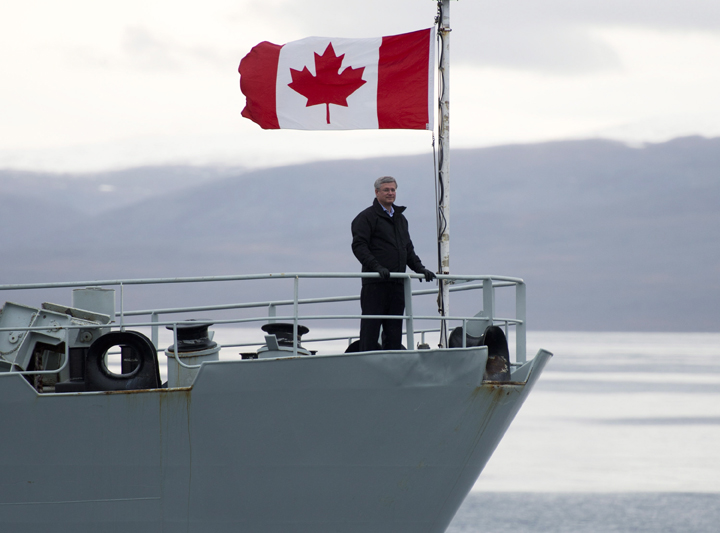New documents suggest that Canada’s last-minute decision to stretch its claim to the Arctic seabed all the way to the North Pole took federal bureaucrats just as off-guard as it did the rest of the world.

Hundreds of pages of records released under Access to Information legislation seem to show bureaucrats were as surprised as Canada’s allies when the Harper government announced it would delay its full submission under the United Nations Convention on the Law of the Sea to give it a chance to try and claim exclusive rights to the sea floor under the Pole.
Days before the Dec. 6, 2013, submission was due, records show Foreign Affairs lawyers were still sorting out the difference between the geographic, magnetic and geomagnetic poles.
“There are apparently three North Poles,” reads a Nov. 21 email.
By that time, Canadian scientists had been working for years to prepare their country’s bid for rights to the Arctic seafloor. They had sailed on icebreakers, camped on sea ice and spent about $117 million painstakingly mapping which parts of that area could be shown to be connected to Canada’s continental shelf.
Actual mapping was said to be complete in 2011. The submission had been widely expected to stop just short of the North Pole.
READ MORE: Arctic sea ice shrinks to 6th lowest; lower than 2013 but up from 2012
Foreign Affairs Minister John Baird has not disputed published reports that Prime Minister Stephen Harper stepped in at the last minute to insist that the North Pole be included. Harper has said in the past that his government is only concerned with getting the largest claim possible for Canada.
So when Canada made its official submission on Dec. 9, it said the Arctic component wasn’t complete and that it would eventually include data backing up a claim that would include the Pole.
The request from The Canadian Press for documents related to that application generated, after an eight-month wait, more than 500 pages of emails, documents, briefing notes and transcripts.
With the exception of material already public such as press releases, the material was heavily redacted. Most documents include only the sender and the recipient, with the entire content of the message blanked out.
But enough information survived to suggest how last-minute the decision to try for the Pole was.
On Nov. 20, at 5:05 a.m., Foreign Affairs lawyers working on the continental shelf issue were presented with a series of urgent questions from the minister’s office.
“(The minister) needs to know by 10 this morning the following …” reads the email, the rest of which is redacted.
READ MORE: Budget for Arctic patrol ships ‘insufficient’: PBO
There are a blizzard of emails in the following days between officials at the highest level of Canada’s Arctic seafloor mapping program.
Old press releases about Santa Claus’s purported Canadian citizenship were dredged up.
By Nov. 29, Baird’s office was demanding a complete list of everyone who had been previously consulted about the submission. Five days later, talking points had been prepared for Baird to explain the changes.
Urgent questions were being relayed from the Privy Council, the body that provides advice and support to the prime minister. A media strategy was under development by Nov. 25.
Eventually, someone remembered Canada’s allies.
“We will have to provide some info for our embassy in Denmark at some point,” reads a Dec. 4 note.
“The whole thing just reeks of amateurism,” said Michael Byers, an Arctic expert and professor of international law at the University of British Columbia.
“It sounds like the decision-makers had no idea as to the actual facts of the situation and were making up policy without any reference to international law or to decades of diplomatic practice on this issue.”
Byers, who argues that geography gives Denmark stronger rights the Pole and that any Canadian claim will disappear in negotiations, says the Harper government’s move was seen internationally as playing to the home crowd.
“They all believe that this is entirely Canadian domestic politics and they are hoping that the process will get back on track after the next Canadian election,” said Byers, just back from meeting with Arctic diplomats and academics in Iceland.
“They’re hoping that even a Conservative government would put domestic politics aside and get back to the realities of international law and diplomacy.”



Comments